Top 250 Movies Like History Uncovered
A list of the best movies similar to History Uncovered. If you liked History Uncovered then you may also like: The 15:17 to Paris, Naqoyqatsi, The Negro Sailor, A Night at the Garden, Race and many more great movies featured on this list.
Myths die hard, and the history of the 20th century is no exception to this rule. Even today, we hold popular beliefs that we take for Evangelical truths. Thus, we believe that Hiroshima caused Japan to surrender, that the Marshall Plan saved Europe, that Adolf Hitler was a military genius, or that Mao Zedong was a necessary evil for China’s modernization. Of course, these judgements contain some truth; but, too broad-stroked to be accurate, they contradict the historical reality by denying its complexity. What if the truth was slightly different? Through an exploration of great national or international myths, this full archive documentary collection revisits the key moments of the 20th century with a new perspective in order to provide a new, smarter and more subtle interpretation, bringing elements to light that have been forgotten or sometimes overshadowed.
History Uncovered
Naqoyqatsi
A visual montage portrait of our contemporary world dominated by globalized technology and violence.
The Negro Sailor
US Navy produced short stars Joel Fluellen as a draftee from his civilian job at a black newspaper through boot camp and an assignment in the Pacific. Completed after the surrender of Japan, the film celebrates the teamwork, diversity, and the actions of several distinguished African American sailors.
A Night at the Garden
Archival footage of an American Nazi rally that attracted 20,000 people at Madison Square Garden in 1939, shortly before the beginning of World War II.
Know Your Enemy: Japan
Frank Capra-directed propaganda film produced during World War II depicting the United States' new enemy: Japan.
Kundun
The Tibetans refer to the Dalai Lama as 'Kundun', which means 'The Presence'. He was forced to escape from his native home, Tibet, when communist China invaded and enforced an oppressive regime upon the peaceful nation. The Dalai Lama escaped to India in 1959 and has been living in exile in Dharamsala ever since.
The Atomic Cafe
A disturbing collection of 1940s and 1950s United States government-issued propaganda films designed to reassure Americans that the atomic bomb was not a threat to their safety.
Black Fox: The Rise and Fall of Adolf Hitler
The rise and fall of Nazi Germany in part through the use of classical allegory.
Buffalo Bill and the Indians, or Sitting Bull's History Lesson
Buffalo Bill plans to put on his own Wild West sideshow, and Chief Sitting Bull has agreed to appear in it. However, Sitting Bull has his own hidden agenda, involving the President and General Custer.
Chicago 10
Archival footage, animation, and music are used to look back at the eight anti-war protesters who were put on trial following the 1968 Democratic National Convention.
Conspiracy
The historical recreation of the 1942 Wannsee Conference, in which Nazi and SS leaders gathered in a Berlin suburb to discuss the "Final Solution to the Jewish Question". Led by SS-General Reinhard Heydrich, this group of high ranking German officials came to the historic and far reaching decision that the Jews of Europe were to be exterminated in what would come to be known as the Holocaust.
The Crossing
A made-for-TV dramatization of George Washington's perilous gamble of crossing the Delaware River and attacking the British forces at Trenton.
Czechoslovakia 1968
Short documentary about 50 years of history of Czechoslovakia, with archive images.
Anastasia
In this animated, optimistic retelling of one of the greatest myths in history, the evil wizard Rasputin puts a hex on the royal Romanovs and young Anastasia is lost when their palace is overrun. Ten years later, the Grand Duchess offers a reward for Anastasia's return. Two scheming Russians, planning to pawn off a phony, hold auditions and choose an orphan girl with a remarkable resemblance to the missing princess. They bring her to Paris for the reward, unaware she's the real Anastasia.
Diplomacy
The night of August 24, 1944. The fate of Paris is in the hands of General von Choltitz, governor of Grand Paris, who is preparing, on Hitler’s orders, to blow up the French capital. The descendent of a long line of Prussian military men, the general has never had any hesitation when it came to obeying orders. This is what’s on Swedish consul Raoul Nordling’s mind as he takes the secret staircase that leads to General von Choltitz’s suite at the Hôtel Meurice. The bridges on the Seine and the major monuments of Paris (including the Louvre, Notre Dame, the Eiffel Tower) are mined with explosives, ready to be detonated. Armed with all the weapons of diplomacy, the consul will try to convince the general not to follow Hitler’s order of destruction.
The Desert Fox: The Story of Rommel
The life and career of Erwin Rommel and his involvement in the plot to assassinate Hitler.
The Madmen of Mandoras
A group of Nazi survivors save Hitler's brain keeping it alive in a huge jar hooked up to a machine. The Nazis plan to release a deadly gas destroying all life on the planet. To ensure their success they kidnap Professor Coleman the only man on the planet with the antidote to the poison gas.
Hitler's Reign of Terror
A documentary meant to show Americans what had been going on in Germany since Hitler's rise, centered on a fact finding trip by Cornelius Vanderbilt, with newsreel footage of book burnings and such.
Human Remains
Human Remains is a haunting documentary which illustrates the banality of evil by creating intimate portraits of five of the 20th century's most reviled dictators. The film unveils the personal lives of Adolf Hitler, Benito Mussolini, Joseph Stalin, Francisco Franco and Mao Tse Tung. We learn the private and mundane details of their everyday lives -- their favorite foods, films, habits and sexual preferences. There is no mention of their public lives or of their place in history. The intentional omission of the horrors for which these men were responsible hovers over the film.
The Memory of Justice
This exceptional, disturbing and thought-provoking documentary compares the atrocities committed by the Nazis as revealed during the Nuremberg trials to those committed by the French in Algeria and those done by the Americans in Vietnam. The four hour epic questions the right of any country to pass self-righteous moral judgements upon the actions of another country.
The Strange Death of Adolf Hitler
A man who is a dead ringer for Adolf Hitler plans to murder him and take over his identity.
Swimming to Cambodia
Spalding Gray sits behind a desk throughout the entire film and recounts his exploits and chance encounters while playing a minor role in the film 'The Killing Fields'. At the same time, he gives a background to the events occurring in Cambodia at the time the film was set.
They Saved Hitler's Brain
At the end of WWII, Nazi officials spirited the living head of Adolf Hitler out of Germany to a hiding place in the South American country of Mandoras, in order to revive the Third Reich at a later date. By the 1960s, the time has come, so a top scientist is kidnapped in order to help keep Hitler alive. This film is a re-edit of The Madmen of Mandoras released in theaters in 1963.
Darkest Hour
In May 1940, the fate of World War II hangs on Winston Churchill, who must decide whether to negotiate with Adolf Hitler or fight on knowing that it could mean the end of the British Empire.
The Gathering Storm
A love story offering an intimate look inside the marriage of Winston and Clementine Churchill during a particularly troubled, though little-known, moment in their lives.
Stanley Kubrick's Boxes
A few years after his death, the widow of Stanley Kubrick (1928-1999) asks Jon Ronson to look through the contents of about 1,000 boxes of meticulously sorted materials Kubrick left. Ronson finds that most contain materials reflecting work Kubrick did after the release of "Barry Lyndon" in 1975, when Kubrick's film output slowed down. Ronson finds audition tapes for "Full Metal Jacket," photographs to find the right hat for "Clockwork Orange" or the right doorway for "Eyes Wide Shut" -- thousands of details that went into Kubrick's meticulous approach. Ronson believes that the boxes show "the rhythm of genius." Interviews with family, staff, and friends are included.
Too Late the Hero
A WWII film set on a Pacific island. Japanese and allied forces occupy different parts of the island. When a group of British soldiers are sent on a mission behind enemy lines, things don't go exactly to plan. This film differs in that some of the 'heroes' are very reluctant, but they come good when they are pursued by the Japanese who are determined to prevent them returning to base.
The Silence of Others
The story of the tortuous struggle against the silence of the victims of the dictatorship imposed by General Franco after the victory of the rebel side in the Spanish Civil War (1936-1975). In a democratic country, but still ideologically divided, the survivors seek justice as they organize the so-called “Argentinian lawsuit” and denounce the legally sanctioned pact of oblivion that intends to hide the crimes they were subjects of.
My F-ing Tourette’s Family
One-off documentary following the Davies-Monk family from Oxfordshire as they try to break out of the seclusion that has been enforced on them by other people's negative reactions to their two children who both have Tourette's Syndrome.
The Hitler Gang
This movie shows us the rise of Adolf Hitler from a small radical political adventurer to the dictator of Germany in the way of a gangster film. Exept for some minor inaccuracies the historical facts are given in a correct way.
The Fatal Attraction of Adolf Hitler
Documentary seeks to answer why the majority of the German people were so willing to follow Hitler, even as he led them into war.
The Tramp and the Dictator
A look at the parallel lives of Charlie Chaplin and Adolf Hitler and how they crossed with the creation of the film “The Great Dictator,” released in 1940.
William the Conqueror
William's government blended elements of the English and Norman systems into a new one that laid the foundations of the later medieval English kingdom. How abrupt and far-reaching the changes were is still a matter of debate among historians, with some such as Richard Southern claiming that the Conquest was the single most radical change in European history between the Fall of Rome and the 20th century. Written by jeff davis, III
Nurnberg
1945. The International Military Tribunal begins its work in Nuremberg. A huge number of people from all over the world come to the trial, which will later be called the Trial of the Century: the city is crowded with journalists, lawyers, translators, witnesses and many participants and employees of the process.
Denzel Washington - Un modèle américain
In 30 years of a deeply committed career and 50 roles, Denzel Washington, double-Oscar winner, placed the figure of the Black man in all its complexity at the heart of the American paradoxes: from Black activist, rebel soldier to gangster torn between violence and charity. Voted best actor of the 21st century by the New York Times a few months ago, Denzel Washington, 65, has risen to the top of American cinema. As an Actor, director and producer, he has shaken up a "color line" as immutable as it is subtle. Often identified with his characters, he reveals himself to be disconcerting and paradoxical. As if he were holding up a mirror to America in which all of its contradictions and failings were reflected. A documentary that chronicles the extraordinary career of the world-renowned African-American actor.
George III: The Genius of the Mad King
After 200 years under lock and key, all the personal papers of one of our most important monarchs are for the first time seeing the light of day. In the first documentary to gain extensive access to the Royal Archives, Robert Hardman sheds fascinating new light on George III, Britain's longest reigning king. George III may be chiefly remembered for his madness, but these private documents reveal a monarch who was a political micromanager and a restless patron of science and the arts, an obsessive traveller who never left southern England yet toured the world in his mind and a man who was driven (sometimes to distraction) by his sense of duty to his family and his country. Featuring Simon Callow and Sian Thomas as the voices of King George and Queen Charlotte.
Charlie Chaplin, The Genius of Liberty
The whole world knows him. Burlesque comedy genius, popular actor, author, director, producer, composer, choreographer, Charlie Chaplin (1899-1977) used his talent to serve an ideal of justice and freedom. But his best scenario was his own destiny, a story written into the political and artistic history of the 20th century.
Winston Churchill: A Giant in the Century
A new look at the public and private life of one of the most important statesmen in the history of Europe: Winston Churchill (1874-1965), soldier, politician, writer, painter, leader of his country in the darkest hours, winner of the Nobel Prize in Literature, a myth, a giant of the 20th century.
Kaye Ballard - The Show Goes On!
This charming documentary showcases the career of musical-comedy sensation Kaye Ballard, whose ability to sing and tell jokes was ubiquitous in the late 20th century. Delightful moments are captured in rare archival footage and interviews with Ann-Margret, Michael Feinstein and Ballard herself.
André Malraux: Writer, Politician, Adventurer
Writer, journalist, explorer, filmmaker, communist militant, freedom fighter. Truths and lies. A plot twist. Politician. General De Gaulle's shadow. Overwhelmed by the weight of power. The numerous exploits of André Malraux (1901-1976).
Picasso sans légende
Involved in the Spanish Civil War, threatened by the Nazi occupiers, glorified at the Liberation, starred during the Cold War: is Picasso's magnified aura really in tune with reality? Without denying his genius, Manuelle Blanc examines the heroic figure of the artist in the Resistance, sifting through the reality of historical events and his actions. Drawing on archive footage and the insights of specialists (academics, critics and art historians), her film sheds light on the weaknesses, contradictions and ambiguities of the man who remains, half a century after his death, an undisputed icon of modern art.
The Man Who Defied Beijing
A portrait of Chinese writer Liu Xiaobo (1955-2017), a witness of the Tiananmen Square massacre (1989), a dissident, a woodpecker who tirelessly pecked the putrid brain of the Communist regime for decades, demanding democracy loudly and fearlessly. Silenced, arrested, convicted, imprisoned, dead. Nobel Peace Prize winner in 2010, alive forever. These are his last words.
Hiroshima
The documentary recounts the world's first nuclear attack and examines the alarming repercussions. Covering a three-week period from the Trinity test to the atomic bombing of Hiroshima, the program chronicles America's political gamble and the planning for the momentous event. Archival film, dramatizations, and special effects feature what occurred aboard the Enola Gay (the aircraft that dropped the bomb) and inside the exploding bomb.
Caligula with Mary Beard
What is true and what is false in the hideous stories spread about the controversial figure of the Roman emperor Gaius Julius Caesar Augustus Germanicus (12-41), nicknamed Caligula? Professor Mary Beard explains what is accurate and what is mythical in the historical accounts that portray him as an unbalanced despot. Was he a sadistic tyrant, as Roman historians have told, or perhaps the truth about him was manipulated because of political interests?
Root of All Evil?
In this two-part Channel 4 series, Professor Richard Dawkins challenges what he describes as 'a process of non-thinking called faith'. He describes his astonishment that, at the start of the 21st century, religious faith is gaining ground in the face of rational, scientific truth. Science, based on scepticism, investigation and evidence, must continuously test its own concepts and claims. Faith, by definition, defies evidence: it is untested and unshakeable, and is therefore in direct contradiction with science. In addition, though religions preach morality, peace and hope, in fact, says Dawkins, they bring intolerance, violence and destruction. The growth of extreme fundamentalism in so many religions across the world not only endangers humanity but, he argues, is in conflict with the trend over thousands of years of history for humanity to progress to become more enlightened and more tolerant.
The Day Hitler Died
The story of Hitler’s final hours told by people who were there. This special features exclusive forgotten interviews, believed lost for 65 years, with members of Hitler’s inner circle who were trapped with him in his bunker as the Russians fought to take Berlin. These unique interviews from figures such as the leader of the Hitler Youth Artur Axmann and Hitler’s secretary Traudl Junge, have never before been seen outside Germany. Using rarely seen archive footage and dramatic reconstruction, this special tells the story of Adolf Hitler’s final days in his Berlin bunker.
Valkyrie: The Plot to Kill Hitler
Recalling Operation Valkyrie, a failed plot devised by German officers to assassinate Adolph Hitler. Included: a look at the events leading up to the July 20, 1944 attempt and the aftermath; interviews with survivors and historians; and archival footage and photographs.
China: The Uighur Tragedy
A relentless chronicle of the tragedy of the Uighurs, an ethnic minority of some eleven million people who live in the Xinjiang region of northwest China, speak a Turkic language and practice the Muslim religion. The Uighurs suffer brutal cultural and political oppression by Xin Jinping's tyrannical government: torture, disappearances, forced labor, re-education of children and adults, mass sterilizations, extensive surveillance and destruction of historical heritage.
Staline: Le tyran rouge
French television documentary film by Mathieu Schwartz, Serge de Sampigny, Yvan Demeulandre and the historic consultant Nicolas Werth about the government of Joseph Stalin in the Soviet Union.
Hitler's 9/11
Adolf Hitler's Nazi megalomania knew no limits. The most daring of his plans World War II involved German fighter planes crashing into Manhattan's skyscrapers as living bombs, like the Japanese kamikazes. Hitler understood the huge symbolic power of Manhattan's skyscrapers. He believed suicide bombing would have a devastating psychological impact on the American people and the U.S. war effort.
Paris 1919: Un traité pour la paix
The last shots had been fired in the First World War — but peace had yet to be made. Inspired by Margaret MacMillan’s acclaimed work of popular history, Paris 1919 takes us inside the most ambitious peace talks in history, revisiting the event with a vivid sense of narrative. Evoking a pivotal moment when peace seemed possible, director Paul Cowan reflects upon the hard-learned lessons of history.
The Battle of Britain
Seventy years on, brothers Colin and Ewan McGregor take viewers through the key moments of the Battle of Britain, when 'the few' of the RAF faced the might of the Nazi Luftwaffe. As they fly historic planes, meet the veterans, explore the tactics and technology, Colin and Ewan discover the importance of the Battle and the surviving legacy of the 1940's campaign for the modern RAF.
Fascism and Football
Documentary examining how the three most powerful fascist dictators of the 20th Century - Mussolini, Hitler and Franco - used football's popular appeal as vehicle of propaganda. Rare archive footage, combined with evidence from historians and contributions from former stars of the game, is used to expose the cases of corruption, sabotage, intimidation and even alleged murder that affected the lives of supporters and many high-profile players alike.
Hitler in Colour
Documentary using only original colour footage charts the 12 years from Adolf Hitler's rise to power to the fall of Berlin in 1945. Complemented by eyewitness material, tracks the dramatic transformation of Germany into a Nazi state, looks into Hitler's relationship with his lover Eva Braun and replicates pivotal events, including Nazi rallies, the invasion of Poland, Hitler's meeting with Lloyd George, the horrors of Buchenwald concentration camp, Warsaw's Jewish Ghetto, the Battle of Britain and the fall of Berlin.
The Eagle and the Lion: Hitler vs Churchill
Winston Churchill, one of the most revered men of the twentieth century. Adolf Hitler, one of the most hated leaders in contemporary history. Between 1940 and 1945, these two enormously contradictory personalities faced each other in both politics and war. A clash of giants whose story begins in the trenches of the World War I and ends with the debacle of the World War II.
Born Under the Red Flag: 1976–1997
CHINA: A CENTURY OF REVOLUTION is a six-hour tour de force journey through the country's most tumultuous period. First televised on PBS, this award-winning documentary series presents an astonishingly candid view of a once-secret nation with rare archival footage, insightful historical commentary and stunning eyewitness accounts from citizens who struggled through China's most decisive century. Mao's death begins BORN UNDER THE RED FLAG, which follows the country's new leadership of Deng Xiaoping and its unlikely transformation into an extraordinary hybrid of communist-centralized politics with an ever-expanding free market economy.
Hitler's Secret Attack on America
For the first time in history, National Geographic Channel and a group of scientists search the ocean floor for a series of shipwrecks many Americans never heard about. Everyone knows that on December 7, 1941, the Japanese attacked Pearl Harbor. But what most don't know is just days later, Hitler sent his own force to devastate the East Coast. On December 19, the German Naval War Staff sent three U-boats to American waters. It was an assault so deadly, it was covered up by the U.S. government.
Hitler's Games, Berlin 1936
Summer 1936 - The Berlin Olympics, organized by the Nazi regime on the eve of World War II, acted as a grand showcase for a Germany that was athletic, peaceful and rejuvenated. The violence and hate that until then had reigned in the streets of Berlin suddenly vanished. Adolf Hitler became the triumphant host of European countries he would soon try to invade or face in a deadly global conflict.
The Living Dream: 100 Years of Rocky Mountain National Park
The history of Rocky Mountain National Park is told with the help of historians, historical photographs and never before seen movie footage. Te begins with the Native American and Mountain Man eras through the pioneers. It continues through the 20th Century and into modern times. A group of individuals pooled their passions and dreams with those of naturalist Enos Mills. They persevered through opposition and antagonism while transforming an economy of mining and ranching to an economy of preservation and conservation. Legendary Everest climber Tom Hornbein and world-class climber, Tommy Caldwell share stories of Longs Peak and join others who pass on their legacies from this National Park.
Hitler's Britain
A "What if?" alternative history sees Nazi Germany prevailing in the second World War. First the occupiers establish their power bases, before they find themselves under attack from the underground resistance.
Women Under Hitler's Flag
German women may be perceived as passive witnesses to the horrific crimes committed by the Nazi regime, but many were active participants that were as brutal and merciless as their better-known, male counterparts. Over the past 15 years, a new generation of international historians has been digging into the truth of how deeply the Third Reich’s women were involved in the atrocities. Combining their fresh analyses with striking archival footage, this film reveals previously unknown stories about the women who refused to live in the shadow of Nazi men.
42 Ways to Kill Hitler
National Geographic looks in some detail at 6 of the many close brushes with death Adolph Hitler had at the hands of assassins. The potential for the plots to succeed are examined as is the unpleasant fate of the would be assassins.
Dick Cavett's Watergate
From 1972 to 1974, the Watergate scandal was frequently a part of “The Dick Cavett Show.” In fact, Cavett was at the forefront of national TV coverage, interviewing nearly every major Watergate figure as the crisis unfolded. With exclusive access to the archive of the show, DICK CAVETT’S WATERGATE documents the scandal in the words of the people who lived it: from the botched burglary at the Democratic National Headquarters; to the must-see TV of the daily Congressional Watergate hearings; to the ongoing behind-the-scenes battle between the White House and “The Dick Cavett Show,” culminating with the resignation of President Nixon on August 9, 1974. DICK CAVETT’S WATERGATE offers a unique opportunity to mark the 40th anniversary of a defining moment in American history.
An Intimate History of Occupation
June 14, 1940. The German Army marches into Paris. France is an occupied country. Through exclusive amateur footage, personal stories, and popular songs from the time, this fi lm recounts life with the enemy during the occupation, as seen by the French... and the Germans! Despite the Nazis and the troubled war times, day-to-day life in occupied France went on. People learnt to live with the rationing, the cues, the curfew... Many try to forget the hard times, mainly thanks to the movies in which big stars provide a little dream and lead a privileged life. These stars don't actually collaborate, butadapt and give the impression of normal life during the war. After all, is it necessarily shameful to shake the hand of an enemy?
Battlefield Behemoths: A History of the Tank – The World Wars.
Filmed just over a century after the first tank battle in 1918, this documentary series explores how the vehicles forever changed warfare.
Nostradamus: 21st Century Prophecies Revealed
How did a French prophet living in 16th century France predict so many modern day disasters? From the tragic events of 9/11, to recent tsunamis in the Pacific, to the Ebola outbreak in 2014–how could one man see so far into the future so accurately? It’s because he had a secret–and now, we know what it was. This documentary takes a look at Nostradamus in a whole new light. New, innovative analysis gives us the chance to finally crack his cryptic code. The emerging truth is that Nostradamus may indeed have possessed a special gift that made his predictions so accurate, but it’s a gift we may all be able to tap into. And, of course the question is, if he was right about so many things in the past, what does the future have in store?
Goering's Catalogue
For more than a decade, Reichsmarschall Hermann Göring, Adolf Hitler's right-hand man during the infamous Third Reich, assembled a collection of thousands of works of art that were meticulously catalogued. Why did he steal entire collections, mainly those belonging to Jewish families, ultimately victims of the Shoah? Was it to satisfy his aesthetic ambitions and his insatiable personal greed or was he acting in the common interest of the Nazi rulers?
WWII in 3D
For the first time, you will see dramatic moments of WWII that were captured in 3D with stereographs and then shuttered away in secret archives and attics, until now. This stunning collection of color 3D photos includes Allied reconnaissance photos, a trove of images that documents the rise and fall of the Third Reich, and photos secretly taken by a civilian in occupied France. WWII IN 3D also features an actual 3D motion picture film shot by the Nazis in 1943 and creates a fully immersive, three dimensional portrait of history's largest and bloodiest conflict.
Restitution? Africa's Fight for Its Art
There is an interlinking history of violent European colonialism and the cultural legacy of ethnographic collections in institutions. This documentary traces the progression of colonial history from the Berlin Conference of 1884-85 to the systematic elimination of cultural traditions, religions and lifeways which would occur sporadically through genocides and warfare until the early 20th century throughout the African continent—surveying the inquiries and movements for historical justice, the relationships between European institutions and colonial violence and following enduring struggles against these organisations to regain what was taken.
Greek Myths: Tales of Travelling Heroes
Eminent classical historian Robin Lane Fox embarks on a journey in search of the origins of the Greek myths. He firmly believes that these fantastical stories lie at the root of western culture, and yet little is known about where the myths of the Greek gods came from, and how they grew. Now, after 35 years of travelling, excavation and interpretation, he is confident he has uncovered answers.
Dans le secret des hiéroglyphes - Les Frères Champollion
By decoding ancient hieroglyphic texts, Jean-François Champollion gave voice to an enigmatic civilization, but behind his legendary feat is a mysterious brother who made it possible. The recent discovery of correspondence between Jean-François Champollion and his brother Jacques-Joseph now allows us to fully understand how a young, self-taught genius was able to make one of the most important discoveries of the 19th century. Without the ingenuity and unfailing support of his older brother, Jean-François would never have succeeded in solving this enigma, which had international repercussions. With animated sequences of their private correspondence, and with the help of archives and expert analysis, this film revisits this unique scientific, human and intellectual adventure to celebrate the bicentenary of the decoding of hieroglyphics.
Dictator: One Crazy Job
They’ve become the human face of inhuman barbarity. Leaders like Hitler, Idi Amin Dada, Stalin, Kim Jong Il, Saddam Hussein, Nicolae Ceausescu, Bokassa, Muammar Kadhafi, Khomeini, Mussolini and Franco governed their countries completely cut off from reality. These paranoid leaders were driven to abuse their power by the pathology of power itself. Dictators are driven by a relentless, thought-out determination to impose themselves as infallible, all-knowing and all-powerful beings. But they are also men ruled by their caprices, uncontrollable impulses, and reckless fits of frenzy, which paradoxically render them as human as anyone else. The abuses they committed were clearly atrocious, yet some of them were as outlandish as the characters portrayed in the film The Dictator. They sunk to depths worthy of Kafka: so incredibly absurd, they are outrageously funny.
Roland Barthes, 1915-1980: Le théâtre du langage
Most of the time, Roland Barthes is classified in the category of the 1970s intellectuals, where all his fascinating singularity fades. Our movie holds exactly to the desire of making perceptible his singularity. In this purpose, the movie is constituted by an editing of archives, articulated around Barthes presence and the progress of his career. It is thus a kind of a Roland Barthes’s cinematic version by Roland Barthes, a self–portrait that could be resumed by a point of view as accurate as possible.
The Hitler–Stalin Pact
How could Hitler and Stalin, sworn ideological enemies, come to a secret pact in 1939? The captivating and detailed story of the diplomatic fiasco that led to the signing of the Nazi-Soviet pact and its devastating consequences.
Outside the Court
They arrive, they smoke, they wait - armed robbers seeking redemption, life-long thieves, addicts and anxious fathers of wayward children. Hard exteriors hide soft centres, old lives exist in young bodies - ordinary people awaiting judgement on an unlovely stretch of pavement outside a London magistrates' court. Whilst waiting for their cases to be heard they reveal their lives, and the complexities of the human soul are laid bare. Tense and intimate conversations with the filmmaker illuminate stories that the magistrates hear daily. Director Marc Isaacs spent three months outside Highbury Magistrates Court and, in doing so, demonstrates how the eye of the camera has the ability to delve much deeper into character and motivation than the eye of the law. Consequently, the more we get to know the characters in this film, the harder it is to make easy judgements. Whilst the court must judge, the filmmaker need not.
Tony Robinson's VE Day Minute by Minute
Tony Robinson’s VE Day: Minute By Minute will take a unique look at a pivotal day in the history of the modern world, delving into the key events that made VE Day such a momentous twenty-four hours. This is the story of what happened on that most celebrated and important day, including original interviews with historians and veterans who tell their stories and share their first-hand experiences. Using unseen archive footage and stills, plus never told accounts from veterans who were there, this one-off special will chart the moment the clock struck midnight, to 24 hours later, when fighting officially stopped across Europe. Up and down the country it was dawning on people that they were waking up not with fear or anxiety, but with relief and excitement. This was a Great Britain no one had experienced for six years. A Britain at peace. At almost no notice street celebrations were being prepared and tens of thousands were flocking to London and other city centres.
Capitulation, the Final Hours that Ended World War II
A film made of archives mostly unknown, on the last day of the Second World War in Europe and on the events which preceded it. This film also shows the growing tension between the Allies and the Soviets at the time: May 8, 1945 is also the first day of the Cold War.
In Search of the Happy Ending
Showtime's "In the 20th Century" is a millennium-related strand of feature-length documentaries in which famous directors take on major subjects of their choosing. In the first of the six films, "In Search of the Happy Ending," filmmaker Garry Marshall delves into the institution of marriage as it has evolved in America throughout the past 100 years.
Hiroshima: Out of the Ashes
The movie follows the perspective of several characters (such as Japanese victims, soldiers, American prisoners of war and others) and how they lived or tried to survive the effects felt during the aftermath of the Atomic Bomb dropping by the Enola Gay at Hiroshima, during World War II.
The Ditch
The film focuses on the suffering of Chinese who were imprisoned in a forced labor camp called Jiabiangou in the Gobi Desert in winter 1960 under Mao Zedong on the grounds that they were "rightist elements". The film tells of the harsh life of these men, who coped with physical exhaustion, extreme cold, starvation and death on a daily basis.
Goering: Nazi Number One
This is the story of an incredible rise to power, the most comprehensive documentary on Hermann Goering ever made. He was a man of many faces: vain, ambitious, more brutal than any other of Hitler's minions, yet the most popular Nazi official of all, at times even more popular than Hitler himself. He embodied the jovial side of the Third Reich. Yet the same man who organised dissolute bacchanals also founded the Gestapo, set up the first concentration camps, and had his own comrades murdered in the purge of 1934. These unique personal records form the largest and most important single film find from the Nazi era in past years.
The Genius of Turner: Painting the Industrial Revolution
A film that looks at the genius of JMW Turner in a new light. There is more to Turner than his sublime landscapes - he also painted machines, science, technology and industry. Turner's life spans the Industrial Revolution, he witnessed it as it unfolded and he painted it. In the process he created a whole new kind of art. The programme examines nine key Turner paintings and shows how we should re-think them in the light of the scientific and Industrial Revolution. Includes interviews with historian Simon Schama and artist Tracey Emin.
Sea Spies
The underseaa world is an unseen battleground. Join Dr. Robert Ballard, former naval intelligence officer and discoverer of the RMS Titanic, as he reveals how the race for global domination as eon from the deapest reaches of the ocean. Using rare archival footage and fully animated recreations, this fascinating documentary examines the technology behind Cold War nuclear subs along with other recently declassified defense systems, such as SOSUS, the U.S. Navy's top-secret sound survelliance network. Sea Spies also looks at the key historical developments that influenced twentieth century warfare and features interviews with marine experts as well as high-ranking military officials.
Pelé
Against the backdrop of a turbulent era in Brazil, this documentary captures Pelé's extraordinary path from breakthrough talent to national hero. Mixing rare archival footage and exclusive interviews, this documentary celebrates the legendary Brazilian footballer who personified football as art.
Einstein and the Bomb
What happened after Einstein fled Nazi Germany? Using archival footage and his own words, this docudrama dives into the mind of a tortured genius.
The Secret Glory
A British-produced documentary about the bizarre life of Nazi SS officer Otto Rahn, focused on his search for the mystical Holy Grail of Christ.
December 7th
"Docudrama" about the bombing of Pearl Harbor on December 7th, 1941 and its results, the recovering of the ships, the improving of defense in Hawaii and the US efforts to beat back the Japanese reinforcements.
The True Glory
A documentary account of the allied invasion of Europe during World War II compiled from the footage shot by nearly 1400 cameramen. It opens as the assembled allied forces plan and train for the D-Day invasion at bases in Great Britain and covers all the major events of the war in Europe from the Normandy landings to the fall of Berlin.
White Light/Black Rain: The Destruction of Hiroshima and Nagasaki
Steven Okazaki presents a deeply moving look at the painful legacy of the first -- and hopefully last -- uses of nuclear weapons in war. Featuring interviews with fourteen atomic bomb survivors - many who have never spoken publicly before - and four Americans intimately involved in the bombings, White Light/Black Rain provides a detailed exploration of the bombings and their aftermath.
The Day After Trinity
This essential, Academy Award–nominated documentary offers an urgent warning from history about the dangers of nuclear warfare via the story of J. Robert Oppenheimer, the enigmatic physicist and all-around Renaissance man who led the Manhattan Project to develop the atomic bomb that America unleashed on Japan in the final days of World War II. Through extensive interviews and archival footage, THE DAY AFTER TRINITY traces Oppenheimer’s evolution, from architect of one of the most consequential endeavors of the twentieth century to an outspoken opponent of nuclear proliferation who came to deeply regret his role in ushering in the perils of the atomic age.
El Salvador: Another Vietnam
This political documentary illustrates the turbulent history of El Salvador from the 1920s-1970s, and the role of the U.S. government in that history. The most comprehensive film introduction to that country, examines the civil war there in light of the Reagan administration's decision to "draw the line" against "communist interference" in Central America. Archival material offers an overview of U.S. military and economic policy in Central America since 1948, while footage drawn from sources in the U.S., Mexico, and Europe provides extensive background to the current political and military situation.




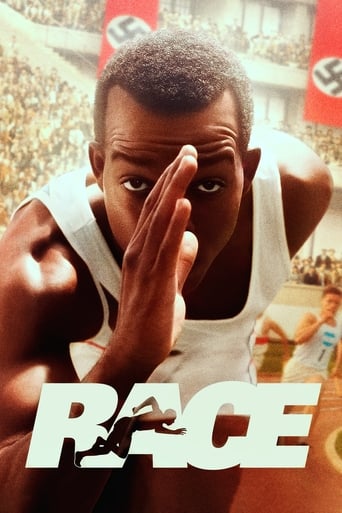







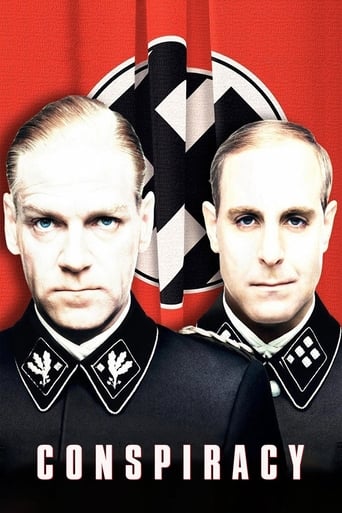


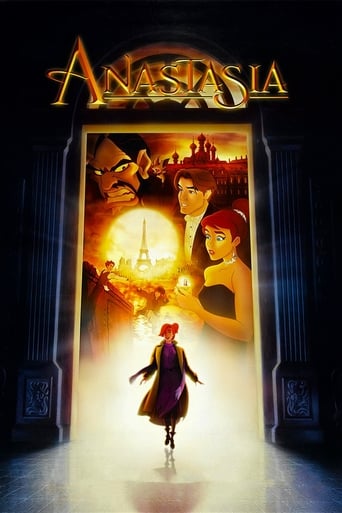

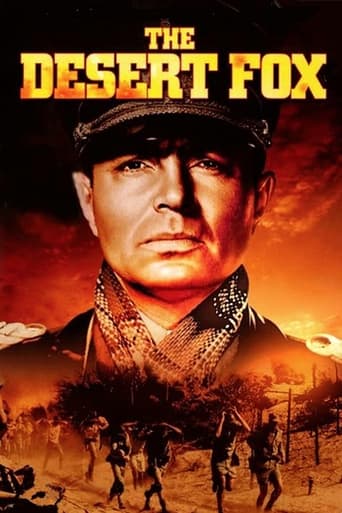




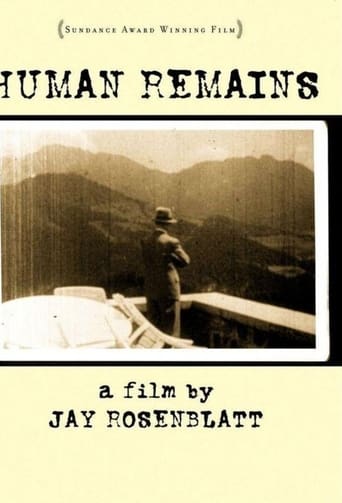







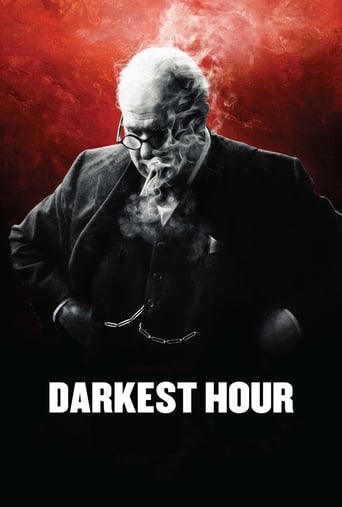


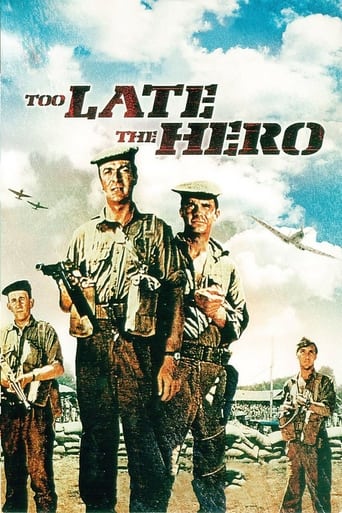







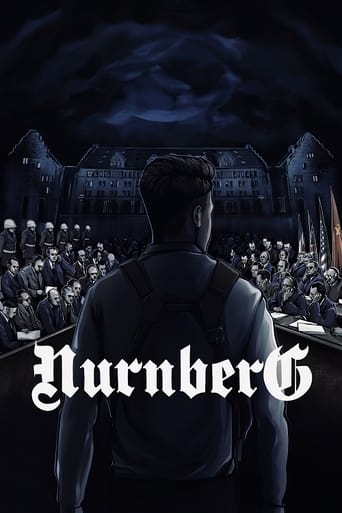



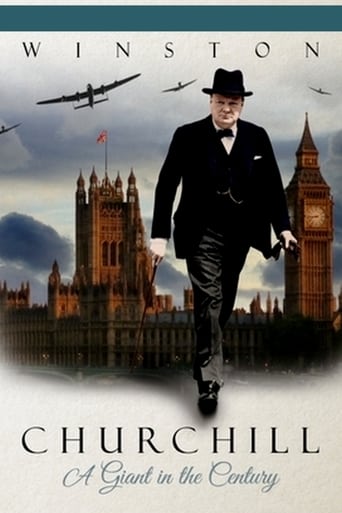







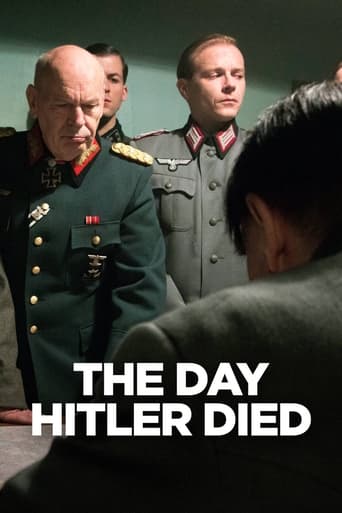
































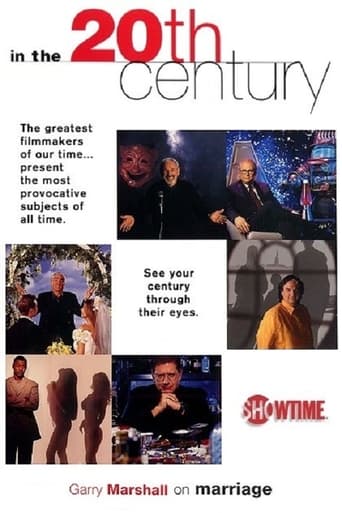
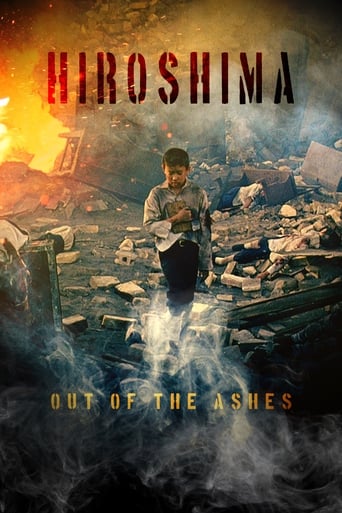






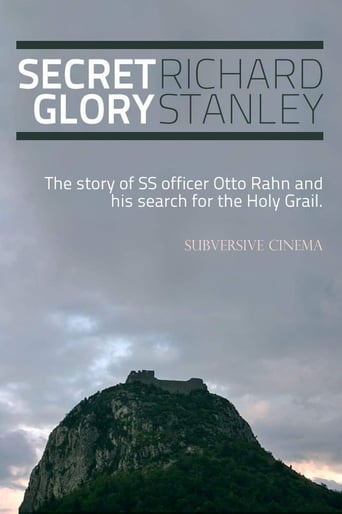
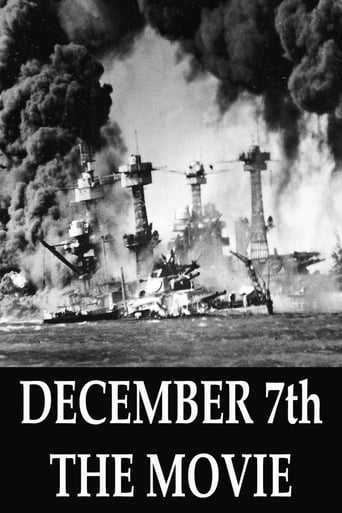
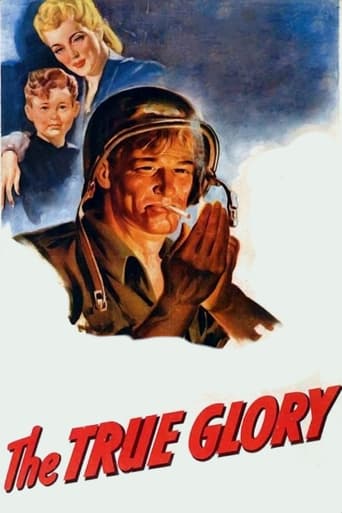
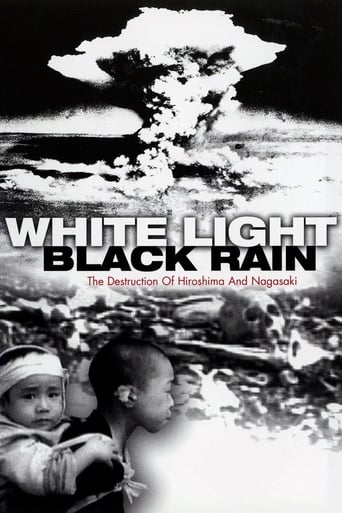
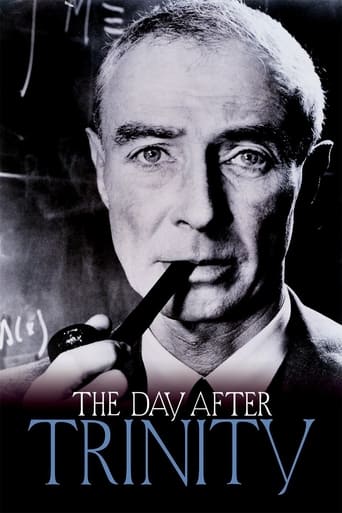

The 15:17 to Paris
On Aug. 21, 2015, the world watches in stunned silence as the media reports a thwarted terrorist attack on a train that's bound for Paris -- an attempt prevented by three young Americans traveling together through Europe. The heroic and courageous actions of Anthony Sadler, Alek Skarlatos and Spencer Stone help to save the lives of more than 500 passengers on board.